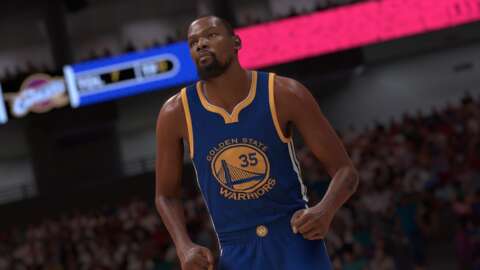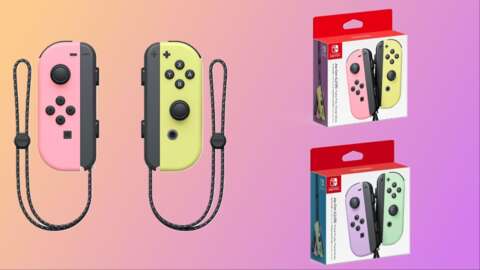In my years of reviewing NBA 2K games, I’ve come to appreciate–and even expect–the game to feel like an authentic love letter to basketball in so many ways. This has been a consistent attribute of the series going back over a decade. NBA 2K doesn’t just capture the culture of basketball; it helps shape it. No other game–not even Madden, despite the head start gifted to it by simulating Americans’ unique obsession with football–offers a total package as immersive and rewarding as NBA 2K. That’s why, in addition to my NBA 2K25 review–and so as not to become too bogged down in the ins and outs of it there–I’m also taking a moment to address the unfortunate pay-to-win economy still infecting what is otherwise the perennial sports game of the year.
If you don’t play NBA 2K, you may be unfamiliar with its woes in this regard, and if you do play it, you may have normalized it to the point that you no longer see it as a concern. Unlike other sports games in which the focal point is often either the team-centric Franchise-style mode or the fantasy-card-collecting loot-box mode, Visual Concepts has built up its MyCareer mode and its social MMO hub, The City, to offer a compelling–and somehow, after all these years, still-unrivaled–tandem attraction in the sports gaming world.
Players create a character and decide on a build like in an RPG, which determines how their player will perform on the court. From there, they can follow a narrative-driven story mode, join an NBA team and play out many seasons of their career, and, best of all, jump into the game’s thriving community in The City. The shared social space that offers an impressive range of things to do, like limited-time events, pick-up games on streetball-style courts, competitive 5v5 games with dedicated groups of teammates, and so much more. This year, they can even race go-karts.
The City and MyCareer combine to create sports gaming’s deepest experience on the market, but it’s hampered annually by a community that has been taught to spend extra cash on making their custom players competitive or else drown in a sea of others getting ahead with the virtual swipe of their debit cards. This is because the MyCareer player debuts as a terrible on-court performer–carrying a 60 overall (OVR) rating–and the in-game money, called Virtual Currency (VC), can be used to improve the MyCareer player, rather than just to buy cool shirts and sneakers for them. The community is so attuned to this reality that it’s actually quite rare in my experience to see many players in the low 60s, even on the game’s launch day.
I tried waiting by the entrance to The City to find players with ratings in the 60s and could hardly ever find any.
While it surely isn’t true, it feels like everyone is spending a bit extra to get their player up to an OVR where they can compete with others online, and the social pressures the game implies through its careful design choices over many years mean this problem feels like it’s hardly ever improving. On launch day, I waited by the subway tunnel where players arrive in The City and tried to spot the players whose banners showed they were still hovering around 60 or even 70 OVR. It was rare that I found one, and when I did, they were standing still, suggesting the not-unlikely scenario that the human on the other end may have been buying their VC right then and there so they could upgrade their player.
A player who chooses not to invest in VC will start the game at 60 OVR and have to slowly improve through play, at the risk of being left out by their friends and teammates who spent more and aren’t willing to have a low-level player on their team. A player paying only $70 on NBA 2K is liable to make games harder for everyone. If you’re one of 10 people playing in a PvP game on launch day, and nine of them are 80+ OVR, and you’re 60 OVR, you’re going to have a bad time, and you’re going to make your teammates’ experience worse too. By 2024, the NBA 2K community has seemingly adapted to this reality by simply spending what they need to in order to remain viable as a player.
For this year’s review, I tried a new method in which I didn’t spend any of the 100,000 VC (roughly $30 worth) that comes with my review copy of the game so I could better experience it as a 60 OVR player trying to make my player better via training, playing different modes, and otherwise grinding it out. What I found was the game isn’t very fun at all. In PvP, I was a consistent source of frustration for my teammates, as I couldn’t cover far better players on the other team, whether they were humans or even the game’s CPU bosses. In modes where you can see others’ OVR ratings, some quickly backed out of matchmaking, maybe because they didn’t want the headache I’d bring.
Other modes hide this number, but my player’s low figurative ceiling meant they’d soon come to the same conclusion, in my experience. I was essentially being picked last for gym class because I didn’t want to shell out another 30 or more dollars to make my player competent. Even in solo career games it felt like being stuck on the Pistons last season. I made it not 48 hours before I caved and used my VC to buy better attributes for my player just so I could accomplish anything of importance in the game.
The slow grind from 60 OVR to something better would be enjoyable if everyone were in the same situation. Instead, the game’s servers come online, and before players do anything else, a seemingly significant number of them immediately buy sums of in-game gold coins that could fill Scrooge McDuck’s vault. It’s remarkable to me that the annualized $100 version of the game, this year called the All-Star Edition, comes with enough VC to get players to about 80 OVR, and still many players are spending more on top of that because you easily find players eclipsing 85 or even 90 OVR right out of the gate. Players and media often discuss how many major games have moved to an expected price of $70, but NBA 2K appears to be the first de facto $100+ sports game. To pay less than that while being interested in the game’s best mode invites frustration and ostracization.
Playing through the game as myself is a lot of fun, until I find that bills are stacking up in my virtual world, too.
This ties into something I wrote last year, in which I lamented how sports games get away with things like this while other games can’t. Most wouldn’t try, and when others do try at times, like Overwatch 2 paywalling some heroes or Star Wars Battlefront 2 offering gameplay-altering upgrades as microtransactions, it’s usually not long before the disapproving player base forces a change. I understand the cost of making a video game of this caliber is prohibitive, and so I’ve always been comfortable with ample cosmetic DLC options. Heck, I’ve spent plenty of my money in games like Fortnite, Sea of Thieves, and even NBA 2K, buying visually cool style options for my avatars. I’ve even come around on NBA 2K’s The City mode looking like a virtual shopping mall–partly because it’s wisely presented like a beach boardwalk in this year’s game, so it feels less like a giant pop-up ad. But once you’ve allowed a game’s currency to dramatically affect gameplay like NBA 2K has for many years now, a line has surely been crossed.
I get the sense these economic problems are not Visual Concepts’ choice, and this is very likely closer to a publisher mandate. The Visual Concepts team clearly loves basketball, and I genuinely look forward to hearing about all the cool new things it’s done with the NBA 2K series each year. This year’s game is no different, and you should read my whole NBA 2K25 review to get a broader sense of how great this game otherwise is. It truly stands alone in so many ways, and it feels like the one sports game I could play forever and never run out of enjoyable things to do. It’s just too bad that, for most players, there’s a costly annual hurdle they must clear before stepping onto the court.

